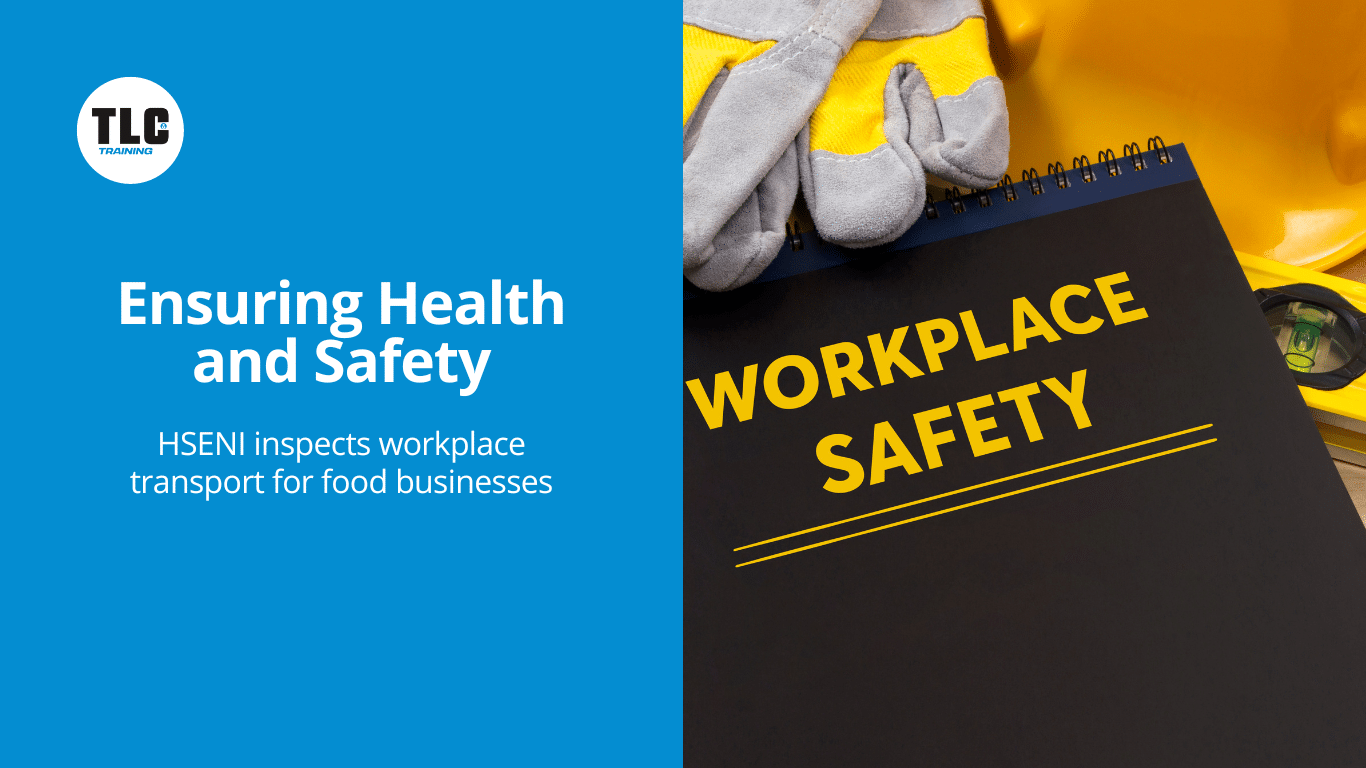The Health and Safety Executive for Northern Ireland (HSENI) has announced that it will inspect food businesses’ workplace transport until March 2024. This inspection aims to ensure that all food businesses in Northern Ireland operate in a safe and responsible manner.
HSENI inspectors will carry out a safety inspection, concentrating on three main aspects: site safety, HSENI inspectors will conduct
a safety inspection, concentrating on three main aspects: site safety, vehicle safety, and driver safety. Inspectors
will evaluate food businesses’ workplace transport in these specific areas to reduce accidents and injuries.
Site safety, driver safety and vehicle safety is crucial in minimising
the risk of accidents as it ensures that all vehicles are in proper working condition and operated
safely. Regular maintenance and adherence to safety regulations can prevent mechanical failures and reduce collision likelihood. By prioritising all tree aspect of safety, businesses can protect their employees and maintain a safer working environment.
HSENI: Site Safety
During the safety check, inspectors will assess the site to ensure adequate safety measures are in place. This includes evaluating the presence of a traffic management plan, which outlines the routes and procedures for vehicle movement within the site.
Additionally, inspectors will assess how well pedestrians and vehicles are separated on the site. It is crucial to ensure that there are designated walkways and areas where vehicles cannot encroach on pedestrian paths. This will prevent accidents and injuries.
Additionally, a designated pedestrian route will be examined. This route should be clearly signposted and free from hazards to ensure the safety of pedestrians working on the site.
Safe Vehicle
Inspectors will thoroughly inspect all vehicles used on the site to ensure they are safe and fit for purpose. This includes checking for all-around visibility, which is essential for drivers to see their surroundings clearly.
The presence of a traffic management plan is crucial for evaluating vehicle movement within the site. Inspectors will also assess the separation of pedestrians and vehicles, ensuring designated walkways and preventing vehicular encroachment. Additionally, the inspection will focus on the designated pedestrian route, which should be clearly signposted and free from hazards. Inspectors will thoroughly check the safety and fitness of all vehicles used on the site, particularly emphasizing all-around visibility for drivers.
Daily checks and defects will be closely examined. It is crucial for food businesses to ensure that these checks are carried out regularly and that any defects are reported promptly. This ensures that vehicles are kept in proper condition and reduces the risk of accidents.
Safe Driver
Inspectors will also evaluate the drivers’ compliance with driving regulations, such as adhering to speed limits and wearing seat belts. They will ensure that drivers are not under the influence of alcohol or drugs while operating vehicles. Inspectors will also verify that drivers have undergone proper induction and training specific to the site and its safety protocols. This guarantees that drivers are aware of potential hazards and are equipped to handle them appropriately.
Inspectors will also assess the drivers’ adherence to driving regulations, including obeying speed limits and wearing seat belts. They will verify that drivers are not operating vehicles while under the influence of alcohol or drugs. Inspectors will also confirm that drivers have received adequate induction and site-specific training to ensure awareness of potential hazards and proper handling techniques. Refresher training may be necessary, depending on individual circumstances and the type of vehicle utilized, to ensure drivers stay up-to-date on safety practices and procedures.
Overall, the safety check conducted by the HSENI inspectors aims to ensure that all food businesses in Northern Ireland have safe workplace transport practices. By addressing site safety, safe vehicles, and safe drivers, HSENI aims to reduce the likelihood of accidents and injuries on the sites. This ultimately ensures the safety of workers, visitors, and the general public.
You can download the free guide from the H&S website https://www.hse.gov.uk/pubns/priced/hsg136.pdf page.

